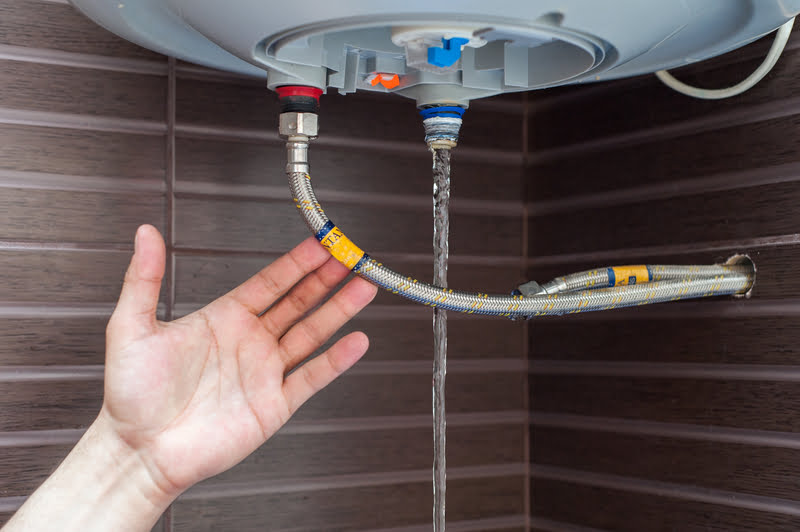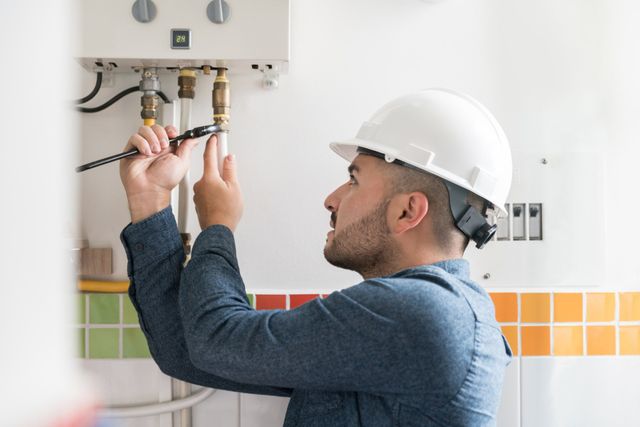In this article below you'll find more dependable information about Is Your Water Heater Leaking?.

A hot water heater is just one of the most crucial basic appliances that can be found in a house. With hot water heater, you do not require to go through the tension of heating water manually whenever there is a demand to take a bath, wash, or the meals. There is always an opportunity that your water heating system would act up as with most mechanical tools.
It is very important to note any type of little malfunction and tackle it rapidly before points get out of hand. The majority of times, your hot water heater starts to malfunction when there is an accumulation of sediments as a result of constant usage. As a safety measure, regular flushing of your water heater is suggested to avoid debris build-up as well as stop functional failing.
Typical water heater emergency situations and also just how to deal with them
Dripping hot water heater container.
In this scenario, you must transform off your water heating unit, allow it to cool down, and carefully look for the resource of the trouble. At times, all you need to do is to tighten a few screws or pipeline links in situations of minor leakages. If this doesn't function and also the leak continues, you might need to utilize the solutions of a technician for an appropriate replacement.
Changing water temperature level.
Your water heating system can begin creating water of various temperatures typically ice chilly or hot warm. There could be a need to replace either the thermostat or the home heating unit of your water heating unit.
Inadequate warm water
It may be that the water heating unit can not support the hot water need for your house. You can update your water heating unit to one with a bigger capability.
Blemished or smelly water
You require to understand if the issue is from the water or the tank resource when this takes place. You are specific that it is your water heating system that is malfunctioning if there is no amusing smell when you run chilly water. The stinky water can be triggered by corrosion or the build-up of microorganisms or sediments in the water heater container. As soon as you discover this, you can try flushing out your container or replacing the anode if the problem lingers. The feature of the anode is to clean out microorganisms from your container. Because the anode pole replacement calls for a detailed understanding of your water heating unit, you will need the assistance of a specialist.
Verdict
Some home owners overlook little caution and also minor faults in their water heater system. This just leads to additional damages and a feasible total breakdown of your home appliance. You ought to handle your water heater faults as soon as they come near prevent even more costs and unneeded emergency problems.
With water heating systems, you don't need to go through the stress of heating water by hand every time there is a requirement to take a bathroom, do the laundry, or the meals. Your water heater could begin producing water of different temperature levels normally ice hot or cold warm. It may be that the water heating unit can not sustain the warm water demand for your house. If there is no funny scent when you run cool water, after that you are certain that it is your water heating system that is malfunctioning. The smelly water can be created by rust or the accumulation of microorganisms or debris in the water heating unit tank.
Common Water Heater Issues and What You Should Do
What Type of Water Heater Do You Have?
Before we begin it’s first important that you identify the type of water heater you have on your property. There are two main types of water heaters out there: conventional and high efficiency.
Both of these types of products typically use either gas or electricity to heat power. There are also solar water heaters that use a thermal collector on the roof or yard to heat the water.
While these models are not as common, they can cut heating costs in half. In this article, we will focus on conventional and high efficiency.
How Do My Electric and Gas Water Heater Work?
Though they look similar, electric and gas water heaters work very differently. It’s important to know their basic function because often problems can be specific to the heating source.
In the electric model, a thermostat on the side of the machine detects the temperature of the water in the tank. When the temperature needs to rise electricity flows to a heating element suspended in the water.
Gas models also use a thermostat device — typically with a mercury sensor at the tip and an additional sensor called a thermocouple. The thermocouple detects whether the pilot light is on and controls the flow of gas.
When the thermostat drops below the appropriate level gas is released which becomes ignited by the pilot light. The flame heats the bottom of the water tank which causes hot water to rise and cold water to drop.
This natural circulation continues until the water reaches the desired temperature. Then, the thermostat triggers the gas control valve to shut off the flow of gas.
What Are the Most Common Issues and How Do You Fix Them?
https://happyhiller.com/blog/common-water-heater-issues-and-what-you-should-do/

As a person who reads on Is Your Water Heater Leaking?, I thought sharing that blog post was worthwhile. Loved our content? Please share it. Let others locate it. I treasure reading our article about The Importance of Water Heater Maintenance.
Book Now!